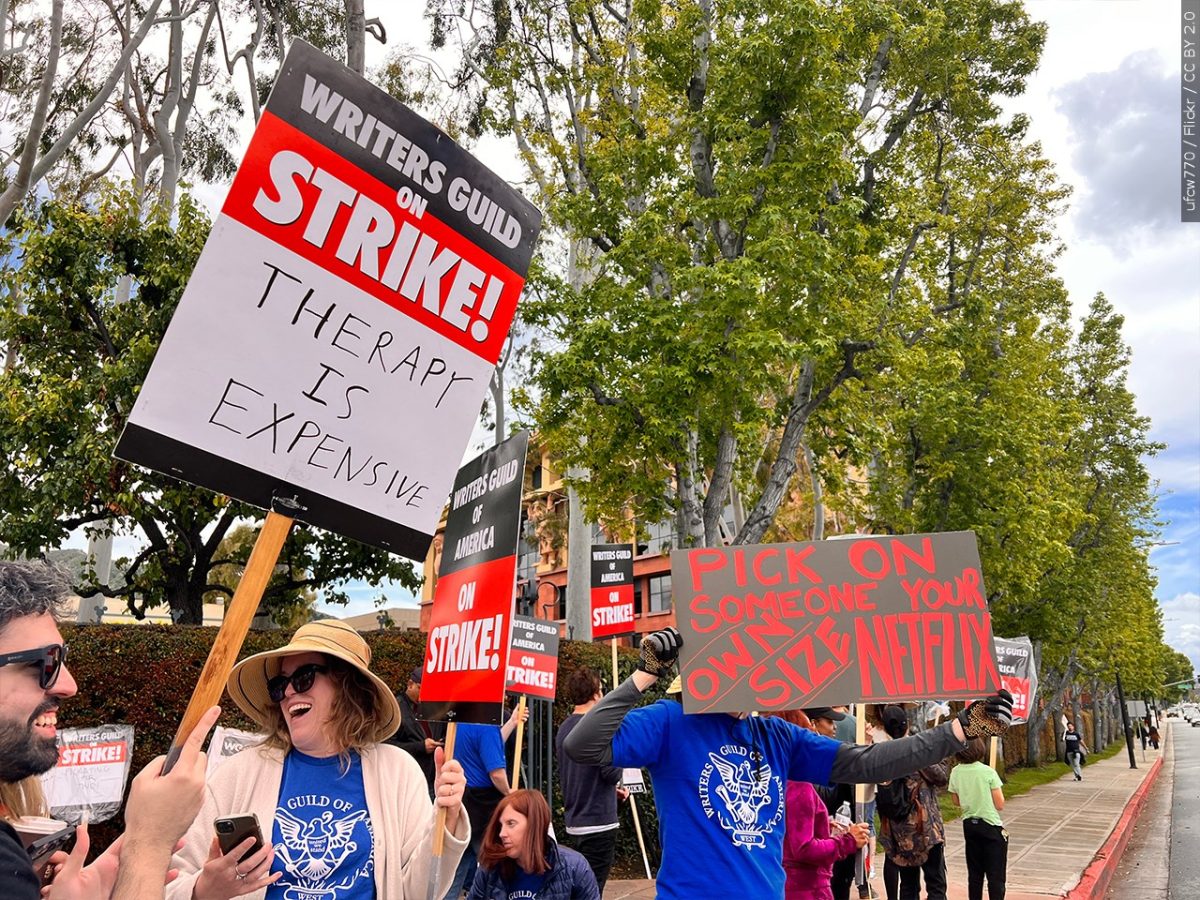After 148 days, the Hollywood writers strike ended on Sept. 27. The strike began on May 2 due to unfair conditions and worries in the workplace.
Writers in the Writers Guild of America, also known as the WGA, began the strike, demanding increased pay and protection from the use of artificial intelligence, or AI, in their industry. Writers were not paid royalties for reruns on streaming platforms and feared that the increased use of AI could eventually cost them their jobs.
The Screen Actors Guild joined the strike on July 13, marking the first time in more than 60 years that writers and actors were on strike at the same time. The strikes caused a halt in production across the industry.
The Screen Actors Guild-American Federation of Television and Radio Artists, also known as SAG-AFTRA, remains on strike following demands of increased pay for streaming services and protection from use of their image generated by AI. The strike is expected to be prolonged due to disagreements between actors and studios.
“With all the things that AI can do, I’m not surprised that writers were worried about their job security,” said Marcus McMain, a junior business management major. “You can literally get AI to do anything. It wouldn’t be hard to get it to write a script. I doubt it would be as good as an actual person writing it, but it could still be done.”
The writers strike ended after the WGA struck a tentative deal with the Alliance of Motion Picture and Television Producers, also known as the AMPTP, at the end of last month. The $233 million deal promises higher pay, streaming bonuses, minimum staffing requirements in TV writers’ rooms and regulation of studios’ use of AI.
“As someone who is interested in writing in my future career, I’m glad that the WGA stayed strong in their fight for better benefits in their workplace,” said Autumn Arnette, a senior Mass communication major. “This situation shows that sometimes you have to take desperate measures, in this case, boycotting your own career for six months, just to get what you rightly deserve.”
This tentative deal is a three-year contract agreement.
“This contract — won with the power of member solidarity and our union siblings over a 148-day strike — incorporates meaningful gains and protections for writers in every segment of the membership,” the WGA said.
Saturday Night Live was one of the many shows to cease production due to the writers strike. The show was forced to bring its 48th season to an end three episodes early. The show will air again this Saturday after a six-month hiatus.
“I watch SNL every week and have just been watching reruns for the past few months,” said Rachel Lumpkin, a freshman Spanish major. “I’m happy that the people who help make my favorite show are getting what they deserve, and I’m even more happy that I’ll get to watch new episodes soon.”
Writers returned to work the day the strike ended. While many are going back to their former jobs, others are looking for new workplaces.
“I am unemployed in kind of an awesome and cool way, and it is kind of nice,” said Kylie Brakeman, former writer for “The Tonight Show Starring Jimmy Fallon.” “Like, I know it is tough to find work as a writer and as an actor, but it feels a little bit more optimistic because it feels like there’s more protections in place.”
More television shows and movies will return to normal production as writers return to the workplace.


